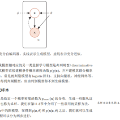Deep generative modeling has seen impressive advances in recent years, to the point where it is now commonplace to see simulated samples (e.g., images) that closely resemble real-world data. However, generation quality is generally inconsistent for any given model and can vary dramatically between samples. We introduce Discriminator Gradient flow (DGflow), a new technique that improves generated samples via the gradient flow of entropy-regularized f-divergences between the real and the generated data distributions. The gradient flow takes the form of a non-linear Fokker-Plank equation, which can be easily simulated by sampling from the equivalent McKean-Vlasov process. By refining inferior samples, our technique avoids wasteful sample rejection used by previous methods (DRS & MH-GAN). Compared to existing works that focus on specific GAN variants, we show our refinement approach can be applied to GANs with vector-valued critics and even other deep generative models such as VAEs and Normalizing Flows. Empirical results on multiple synthetic, image, and text datasets demonstrate that DGflow leads to significant improvement in the quality of generated samples for a variety of generative models, outperforming the state-of-the-art Discriminator Optimal Transport (DOT) and Discriminator Driven Latent Sampling (DDLS) methods.
翻译:深基因模型近年来取得了令人印象深刻的进展,到现在人们通常看到与真实世界数据非常相似的模拟样品(如图像),然而,对于任何特定模型而言,生成质量一般不统一,而且各样本之间差别很大。我们引入了差异性模型渐变流(DGflow),这是一种新技术,通过真数据和生成数据分布之间的梯度流来改进生成的样品。梯度流以非线性Fokker-Plank方程式的形式出现,这种方程式可以通过同等的麦肯那-弗拉索夫过程的取样很容易地模拟。通过精炼低级样本,我们的技术避免了以往方法(DRS & MH-GAN)所使用的浪费性样本拒绝。与目前侧重于特定GAN变量的工程相比,我们展示了我们精细的方法可以适用于GANs,由病媒估价的批评者,甚至其他深层次的归正化模型,如VAE和正统化流程。在多种合成、图像和正变异性模型的DNA模型中取得的磁性结果。




